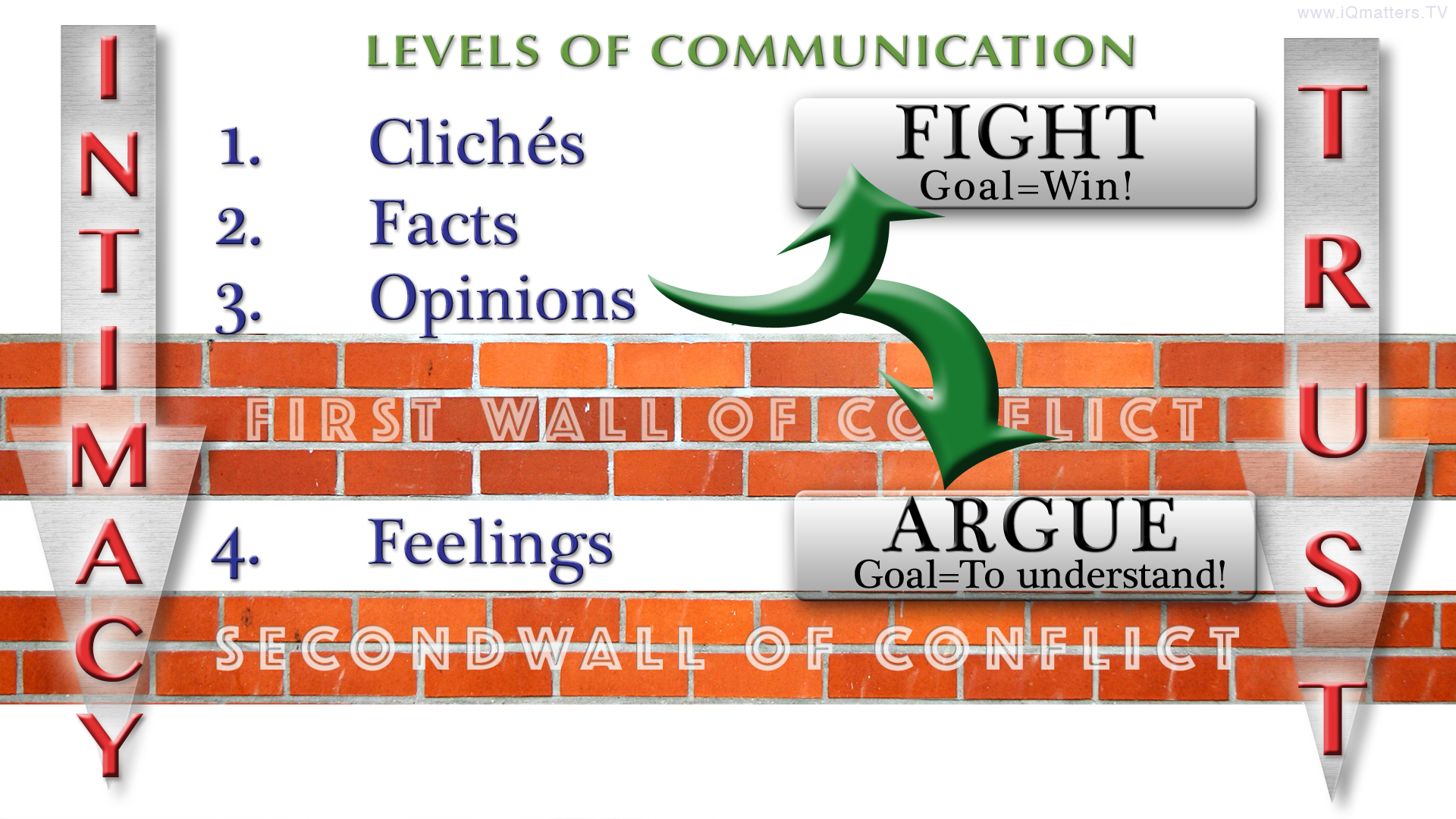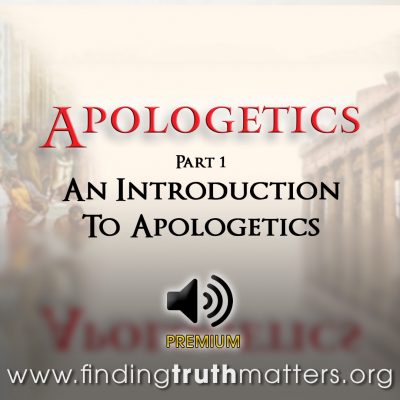home > articles > The Art of Making An Apology

Conversion to Christ begins with an apology. The foundation of conversion to Christianity is repentance. One of the intrinsic elements of repentance is acknowledging guilt and expressing sorrow. We do this in order to reestablish a relationship with someone. We call this ‘apologising.’ There are three steps to a good apology and learning how to do it well could salvage or even strengthen a relationship. But failing to apologise could result in a life of misery and manifold missed blessings.
¶ Finally, I confessed all my sins to you
and stopped trying to hide them.
I said to myself, “I will confess my rebellion to the LORD.”
And you forgave me! All my guilt is gone.
Psalm 32:5
 I’ve been a Pastor and Marriage Celebrant for well over 25 years. It is one of the joys of my work to prepare a couple for marriage and then conduct their wedding. But this work has also encompassed trying to repair marriages. One of the first things that needs to happen in a badly damaged marriage is repentance. This involves an apology. But I have since discovered that perhaps the majority of people do not know how to apologise. For some, an apology is merely uttering the words: “I’m sorry.” For others, an apology is acknowledging guilt while simultaneously blaming the one they are apologising to for the offence. Neither of these two types of apologies are genuine apologies.
I’ve been a Pastor and Marriage Celebrant for well over 25 years. It is one of the joys of my work to prepare a couple for marriage and then conduct their wedding. But this work has also encompassed trying to repair marriages. One of the first things that needs to happen in a badly damaged marriage is repentance. This involves an apology. But I have since discovered that perhaps the majority of people do not know how to apologise. For some, an apology is merely uttering the words: “I’m sorry.” For others, an apology is acknowledging guilt while simultaneously blaming the one they are apologising to for the offence. Neither of these two types of apologies are genuine apologies.
When next you have to apologise, do not–
- Merely say the words, “I’m sorry.”
- Do not excuse your actions (“I’m sorry, but it was not my fault!“)
-
Do not shift the blame onto the one you are apologising to (“I’m sorry, but if you hadn’t…then I wouldn’t have…“)
Too many times I have mediated between a husband and a wife who are in conflict where either or both parties have given non-apologies disguised as apologies. But an apology that commits one of the three mistakes listed above only injures a relationship. Before an effective, healthy, therapeutic apology can be exchanged, there is something that must happen…
 We call it “Active Listening” but we might as well call it “rare listening” – because too few couples do it. Active Listening is not just hearing what someone has told you, it is hearing why they have told you. This involves discerning things unsaid yet communicated. For example, when a wife tells her husband not to wear his shoes in the house, what is she actually telling him? Initially it might sound like she simply doesn’t want the dirt from his shoes traipsed through the house. While this is most probably true, this is probably not all that she is telling her husband. She could also be telling him that she has just spent valuable hours of her time cleaning the house- especially the carpets and floors. She could also be telling him that despite her busy schedule, because he just wore his shoes into the house she was forced make time to clean up the mess he made! She could also be asking him, “Do you respect me?” What he says to a question like this is almost irrelevant- it’s what he does that actually gives her his answer.
We call it “Active Listening” but we might as well call it “rare listening” – because too few couples do it. Active Listening is not just hearing what someone has told you, it is hearing why they have told you. This involves discerning things unsaid yet communicated. For example, when a wife tells her husband not to wear his shoes in the house, what is she actually telling him? Initially it might sound like she simply doesn’t want the dirt from his shoes traipsed through the house. While this is most probably true, this is probably not all that she is telling her husband. She could also be telling him that she has just spent valuable hours of her time cleaning the house- especially the carpets and floors. She could also be telling him that despite her busy schedule, because he just wore his shoes into the house she was forced make time to clean up the mess he made! She could also be asking him, “Do you respect me?” What he says to a question like this is almost irrelevant- it’s what he does that actually gives her his answer.
¶ And you husbands must love your wives with the same love Christ showed the church. He gave up His life for her.
Ephesians 5:25
“So what you’re saying is…” is an appropriate way to respond when you are active listening. “So what you’re saying is that I’ve…” By repeating back to the person who has just shared why they feel wronged by you, you give them the opportunity to do two things-
1. It lets them know what you thought you heard them tell you (you may not have heard them or interpreted what they said correctly and it allows them to clarify what they have told you so you have understood them more clearly).
2. It gives you the opportunity to show them that you understand how they felt when you wronged them.
The next time someone tells you something that they expect you to apologise to them for, rather than become defensive, see it differently. See these moments as an opportunity to strengthen your relationship with them. Here’s why. Relationship intimacy has five markers. These markers are an indication of the type of communication that exists between those in the relationship.

Level 5 is the deepest kind of intimate communication. But no relationship can start there. Generally, when you meet someone “cold” (without introduction) you engage them at Level 1. This is the sharing of cliches. Parents must teach their children this type of socialising, but demand from them that learn who to speak more openly with, and how to do it. But it begins with cliches. This is also ‘polite’ conversion. The next level of intimacy communication is Level 2, the sharing of facts. When bridges of trust are established, facts can be exchanged that reveal a little more of a person’s heart. It’s at the next level of intimacy, however, that conflict in a relationship arises. It is at this point that most relationships retreat back into the mere exchange of facts. The next level of intimate communication is Level 3, Opinions. This becomes the doorway to getting to really know someone. “What do you think about…?” “What are you thinking?” It is when we exchange opinions about religion, politics, sport, work, gender differences, history, culture, art, attitudes, that we risk conflict. Because most of us try to avoid conflict at all costs, most relationships that don’t engage in a rigorous exchange of opinions simply revert to a shallower relationship at Levels 1 – 2.
 It is at the point of conflict that most relationships falter. But it is also at this moment of crisis that there exists a great opportunity to cultivate deeper intimacy. In order to develop a deeper relationship with another person, it is necessary to diffuse conflict and set the goal of understanding the other person. By truly hearing the other person’s opinions you are able to gain a greater understanding into them. The level to which you understand a person is commensurate with the depth of relationship with them. If you are able to do this, you position your relationship to go to Level 4, the sharing of feelings.
It is at the point of conflict that most relationships falter. But it is also at this moment of crisis that there exists a great opportunity to cultivate deeper intimacy. In order to develop a deeper relationship with another person, it is necessary to diffuse conflict and set the goal of understanding the other person. By truly hearing the other person’s opinions you are able to gain a greater understanding into them. The level to which you understand a person is commensurate with the depth of relationship with them. If you are able to do this, you position your relationship to go to Level 4, the sharing of feelings.
Feelings are deeply personal. When a person tells you how they feel even though what they tell you may hurt your own, they are actually complimenting your relationship with them. Those in business know that when a customer vents their feelings about a poor product or sloppy service, they are doing the business a favour. Recently, Kim and I used a new Travel Agent to book some international flights. We do a few trips a year so our relationship with our Travel Agent is important to us. But our trip got off to a bad start and then ended on a disappointing note because our flights were changed and the Travel Agent didn’t tell us. A month or so after we returned I received a call from the owner of the Travel Agency enquiring about his staff’s performance in putting our trip together. I told him that we were quite disappointed about the 5 hour wait we didn’t expect at one airport and the six hour wait we hadn’t known about at another airport. We told him how we felt to be so let down by his company. He was mortified to hear this. He investigated and discovered that the airline had indeed notified his company of the flight changes, but the staff member had failed to pass on this advice to us. He apologised and sent us a gift as an expression of his apology. We will probably give his travel agency another go because of the way he has handled this. Conflicts can lead to greater understanding and the expression of feelings almost certainly does, if received well.
But the deepest level of intimacy that can only be achieved when an apology is made well, is Level 5, sharing needs. This is a rare depth of intimacy for a couple. It takes years of intimacy to arrive at. It is the most fragile and vulnerable position that two people can willingly place themselves into, but it is easily the most rewarding. But it begins with a sincere apology.
All of us probably need to apologise to someone and all of us need to apologise to Someone. For us to have any fellowship with, let alone a relationship with, God, we must apologise to Him. This involves acknowledging our guilt, repenting of our sin, and seeking His forgiveness. If we can develop our relationship with God we can come to express to Him our true heart- our opinions, our feelings and even our needs. No one in the universe is able to satisfy these deepest longings for relationship that we all have, other than God. There are good reasons for these assertions, but that involves a different type of apologising to explain them.
Dr. Andrew Corbett
July 10th 2010, writing from Legana, Tasmania, Australia
https://www.findingtruthmatters.org
This article may be copied and distributed if due credit is given to the author, the article is not altered, and the website- https://www.findingtruthmatters.org – is hyperlinked or referenced.
-
Sale!

5 Things We Need To Do To Break Our Church’s 200 Barrier, Premium Audio
Original price was: $1.75.$0.95Current price is: $0.95. -
Sale!

A Morning With Izaak Walton – The Compleat Man, Premium Audio
Original price was: $1.75.$1.25Current price is: $1.25. -
Sale!

Apologetics Part 1 – Introduction To Apologetics, Premium Audio
Original price was: $1.75.$0.95Current price is: $0.95. -
Sale!

Apologetics Part 2 – The Apologetic Arguments For God, Premium Audio
Original price was: $1.75.$0.95Current price is: $0.95. -
Sale!

Apologetics Part 3 – The Apologetic Arguments For The Bible, Premium Audio
Original price was: $1.75.$0.95Current price is: $0.95. -
Sale!

Apologetics Part 4 – The Apologetic Arguments For Christianity, Premium Audio
Original price was: $1.75.$0.95Current price is: $0.95.







































0 Comments